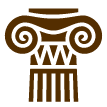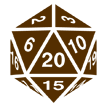Bogsweat
Bogsweat is a humble collection of closely-packed villages in the middle of a giant brackish marsh on the Free Coast. Incorporated together, the villages make up just barely a large enough community to have been one of the founding members of the Tycho Free States, third to sign the Tycho Free States Accords.
History and People
The oldest surviving Castorhagi town on the Free Coast, Bogsweat was among the original penal work colonies commissioned by Queen Malice in 2301 I.R. Though too small to appear on most maps, several little streams come together to form a swampy wetlands and estuary just to the west of Bogsweat’s humble brick huts and storehouses. Bogsweat was unique among the labor camps in that its location was chosen for peak food production, and prisoners sent to Bogsweat worked to produce exports for sale to line Castorhagi pockets and also to feed the rest of the Forest Coast Work Colonies.
For this reason, even after King Lertis began his ill-advised Great Road project and pulled all other laborers out of their “colonies” and put them to work on the road, Bogsweat was the only such town to remain continuously populated, hard at work with fishing, farming of staples, and cultivating herbs both medicinal and magical. Positioned as they were, largely inaccessible to the north and west due to miles of marsh and swamp, and with their backs to the (at the time) Castorhagi-dominated sea, Bogsweat was touched by the war only in that it now had to provide for thousands of soldiers and sailors as well as its fellow labor colonies.
After the Great Road was abandoned, King Acquire lost interest in the Forest Coast colonies and gave governorship of Bogsweat to an irritating courtier who’d done him an important favor. The courtier, one Lord Governor Merris, excitedly departed for his new position, convinced he could make himself fabulously wealthy there. Merris ordered a disastrous foray into major export crops like cotton and tobacco despite the region’s inappropriately moist soil for either plant. The more money he lost on the venture, the more convinced he became that “next year” the harvest would bathe him in gold.
During this time, the Bogsweat population swelled to the maximum that could be supported by the region, with most inhabitants still being indentured laborers (either punitively or through self-indenture to pay off debts). Only the presence of this pool of poorly-treated, near-slave labor enabled Merris to turn anything like a profit from his ridiculous orders to his subjects. Merris did die modestly wealthy, but the culture of Bogsweat was forever altered by his practices.
Every governor after him continued the reliance on large populations of ill-treated indentured labor, but these chose their projects more wisely, including not only high-yield crops such as a nutritious rice brought back from trade with Xha’en, but also dangerous fishing practices and oyster beds. Bogsweat’s name was changed to Pearlhaven, a place for the wealthy to make themselves wealthier by working the indentured poor (not uncommonly) to death.
This state of affairs continued quietly, despite all the upheaval in Castorhage, until Pearlhaven was sacked by pirates in 2797 I.R., while Castorhage lay stricken with plague. In addition to all the pearls waiting at the docks to be shipped to jewelers all over the world, the pirates also stole all of the governor’s vast wealth, his excessively-stocked armory, and his seal of office. The pirates used this loot (and a fair amount of trickery) to sack Ilber Nole as well, Castorhage’s last remaining fortification on the Forest Coast. With the plague in full force, all communication between the Forest Coast and Castorhage ceased.
The pirates decided to seize Pearlhaven for themselves. The Castorhage-appointed governor was deposed and replaced by a tyrannical pirate captain as the small settlement’s so-called “king.” Unfortunately, so much was destroyed in the sacking of the town that Pearlhaven’s wealth was slow to recover, made worse by previous overfishing and mismanagement. In an ironic turn of events, the grandson of the original pirate king was forced to re-pledge fealty to Castorhage to maintain his control of the town and accepted a change in title back to governor. Although Castorhage was happy to accept the payment of taxes and to provide extremely modest naval support in return, the interest of the Castorhagi rulers in the Forest Coast was in decline, and a reduced-productivity Pearlhaven was largely ignored.
The next generations of governors (now an inherited position) departed from a model of indentured servitude in favor of outright enslavement of large portions of the populace, a change that did not sit well with Pearlhaven's more liberty-minded neighbors. In 3236 I.R., Pearlhaven was once again sacked, this time by revolutionaries bent on freeing the Forest Coast from “all bondage.” Despite the good intentions of their liberators, the newly freed slaves were left largely to fend for themselves and pick up the pieces of the destroyed community and decide on a means of self-government.
When the Forest Coast colonies officially declared independence from Castorhage in 3237 I.R., the first elected headwoman of Pearlhaven — chosen for the position largely because she had received an education before the misfortunes that made her a slave — signed the independence declaration and Free States Accords as Alice, Headwoman of Bogsweat.
Her decision was controversial at first, but Alice argued that Pearlhaven was a name born of injustice and suffering, and the community should not want to invite such a thing ever again. Rather than advertising themselves as pearls to be stolen or bought and sold, the residents would be better served by a humble name that would keep outsiders away. The residents put the name to a vote and narrowly chose to follow Alice’s advice of returning the region’s name to Bogsweat.
Though Bogsweat is adjacent to no actual bogs, most of the region is marshy, muddy, and damp, uncomfortably humid in the summers, and prone to mosquitoes. Without the pearl association, few would want to live there who weren’t born there. Nevertheless, Bogsweat’s rice paddies, cultivation of rare herbs, fishing hauls, and oyster beds have made the town prosperous enough that its name isn’t always enough to deter a perceptive outsider from seeking their fortune here, legally or illegally.
Religion
Bogsweat religion is humble, quiet, insular, and a bit odd, much like the region itself. It combines animistic and tribal beliefs and practices from all over the world (beliefs which Bogsweat inherited from its multicultural work-camp and slave ancestors) with local re-interpretations of a few Castorhagi deities and other spirit beings. Believers top all this off with local quirks and superstitions. Technically, all religions are welcome in Bogsweat, but locals do look askance at any who won't participate in the regional festivals.
Trade and Commerce
Bogsweat has much of value to trade, and in recent years made arrangements with Freetown shipping vessels to distribute its goods more effectively, leading to a surge of economic growth not entirely welcome in the insular little region.
Bogsweat still produces fine pearls, though this is less advertised to outsiders than it was during the Pearlhaven era. In addition, Bogsweat produces many tons annually of spare rice for sale, and the Bogsweat herb fields are the true backbone of the region’s economy. Dried herbs from Bogsweat are ubiquitous in apothecary shops and magical supply markets throughout the Crescent Sea and beyond.
The Free Coast now offers a great deal of competition in the fishing industry, so Bogsweat concentrates more on its own specialties, fishing more for sustenance than commerce. That said, Bogsweat folk are adept at preserving fish and roe, and some other fishing communities bring their excess to Bogsweat for smoking, salting, or pickling.
Loyalties and Diplomacy
A full member of the Tycho Free States, Bogsweat is standoffishly friendly with its fellow states. Protected now by Freetown and the rest of the Tycho navy, most residents of Bogsweat prefer to keep their heads down and ignore the outside world. That said, Headman Valor is known among the rest of the Tycho government as an excellent diplomat and deal-maker. His political capabilities are more appreciated at the meetings of the Free States’ heads than they are at home.
Government
Bogsweat adult citizens of good standing vote for the headperson and for a “people’s judge” whose job it is to curb the powers of the government whenever necessary. The headperson appoints a council of nine elders from any “respectable townspeople of grandparenting age or older,” and this council makes most of the region's decisions.
Despite the populist ideals underlying this system, the last several headpeople have continually appointed the wealthiest landowners to the council of elders, and the members of the town’s watch seem to all be relatives of said landowners and of late far more concerned with the protection of their landowning relatives than with defending and policing the general populace. The last several people’s judges have either been toothless, been bought by the elders, or died early.
Laws in Bogsweat are, therefore, wandering steadily back toward a feudalistic model, and indentured servitude has once more become a commonplace and accepted moneymaking practice.
Military
Other than the bullying watch, Bogsweat has almost no military whatsoever. Individual landowners hire their own mercenary security forces, and the region as a whole relies on the rest of the Tycho Free States for protection. When additional forces are needed, the town must usually hire outsiders.
Major Threats
It is not impossible that Bogsweat could once again be targeted by pirates, though the Tycho navy has protected them thus far. Other threats include a regular stirge problem, and the occasional will-o’-wisp or chuul. The latter two threats are often more than Bogsweat can handle alone and have led to the hiring of mercenaries on all previously recorded occasions.
In addition, due to recent shifts in Bogsweat’s government, greedy resource management has again become the rule, and Bogsweat’s poor grow hungrier. Rumor even claims that some Bogsweat landowners are illegally importing slave labor and magically geasing the slaves not to speak of the crimes committed against them.
Rumor also whispers of dangerous magical experiments being performed on plants and sea life in irresponsible attempts to increase yield and profits and to allow better fishing competition with surrounding communities. If this is the case, it cannot be long before the perennially benighted community of Bogsweat faces the worst fallout of rampant greed that it has ever seen.
Wilderness and Adventure
The marshes surrounding Bogsweat are mostly long-tamed and monster-free, with the exception of an unusually high stirge population that keeps coming back no matter what the locals do. However, the Bogsweat marshes do attract the occasional dangerous invader. Will-o’-wisps and chuuls are encountered a few times a decade, and legend tells of a couple of black dragons in the distant past, one of which was probably actually a hydra, depending on the version of the tale that one hears.
Settlement
Bogsweat, City of
Type
City
Owning Organization











Comments